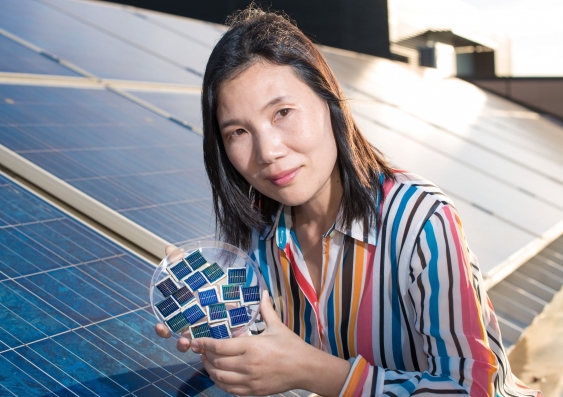UNSW and top China scientific body join forces with leading academic publisher
Publishing house Springer Nature is joining with UNSW Sydney and the Chinese Academy of Sciences to promote research to the world.
Publishing house Springer Nature is joining with UNSW Sydney and the Chinese Academy of Sciences to promote research to the world.

UNSW Sydney and the Chinese Academy of Sciences Institute for Science and Development (CASISD) have announced a partnership with the world’s leading academic publishing house, Springer Nature, to increase global promotion of Australian and Chinese research.
The multilateral collaboration cements the existing research relationship UNSW has had with the Academy since 2009. The Academy has become one of UNSW’s largest global research collaborators. The Institute, which falls under the Academy, was established in 2016 and is an influential think-tank that provides advice to major Chinese Central Government policy agencies, including the State Council and the Ministry of Science Technology.
Adding Springer Nature to the collaboration will increase its reach beyond China and Australia to influence international research leaders. With China now ranking second in high-quality research output, this new partnership reflects China’s growing role as a major player in global knowledge production, and Australia’s role as a catalyst for international exchange of ideas and research.
“The partnership is the largest between an Australian university and the Academy,” said UNSW President and Vice-Chancellor Professor Ian Jacobs. “The addition of Springer Nature will significantly enhance the partnership with the opportunity to provide services to the research community to ensure research is accessible, available, understood and shared so that it may lead to new discoveries.”
The combination of the expertise and knowledge within the Academy, UNSW’s world-leading research and strong links to China, and Springer Nature’s credibility and channels, creates a unique opportunity to promote the capabilities of all three organisations, as well as outstanding research from Australia and China.
“This three-way partnership further strengthens Springer Nature’s commitment to fully support world-class researchers in Australia and China,” said Dr Paul Evans, Director, Nature Research Group, Greater China. “Publishing quality research is a key aspect of a researcher’s career; Springer Nature provides innovative tools and services to help develop collaborations, build reputations and to make sure new ideas and knowledge are shared outside of a silo.”
The new collaboration was launched at the inaugural China-Australia Innovation Summit, held on Monday 19 November at the Chinese Academy of Sciences in Beijing.
The Summit will alternate annually between China and Australia focusing on multi- and interdisciplinary challenges affecting the construction of research, science and economic policy, with the objective of making recommendations to senior levels of government on both sides.
During the 2018 Summit, UNSW and Chinese academics delivered a five minute presentation on four themes selected as key challenges for China, Australia and globally: energy, global health, artificial intelligence, and next generation materials.
Professor Pan Jiaofeng, President of CASISD, said the collaboration builds on a solid foundation for future Sino-Australian joint research activities.
“CASISD and UNSW will continue to conduct excellent research directly in China and Australia,” said Professor Pan. “By pooling together an elite talent pool, CASISD and UNSW will build an advanced international strategy and policy research network to address major issues facing both China and Australia, and the world.”